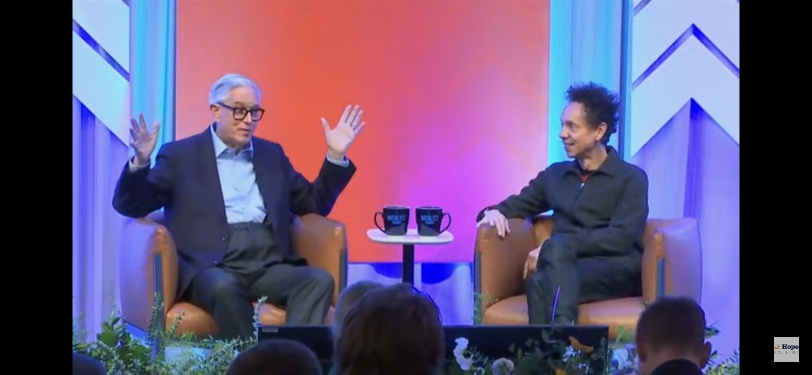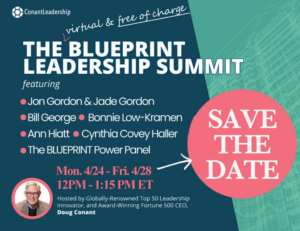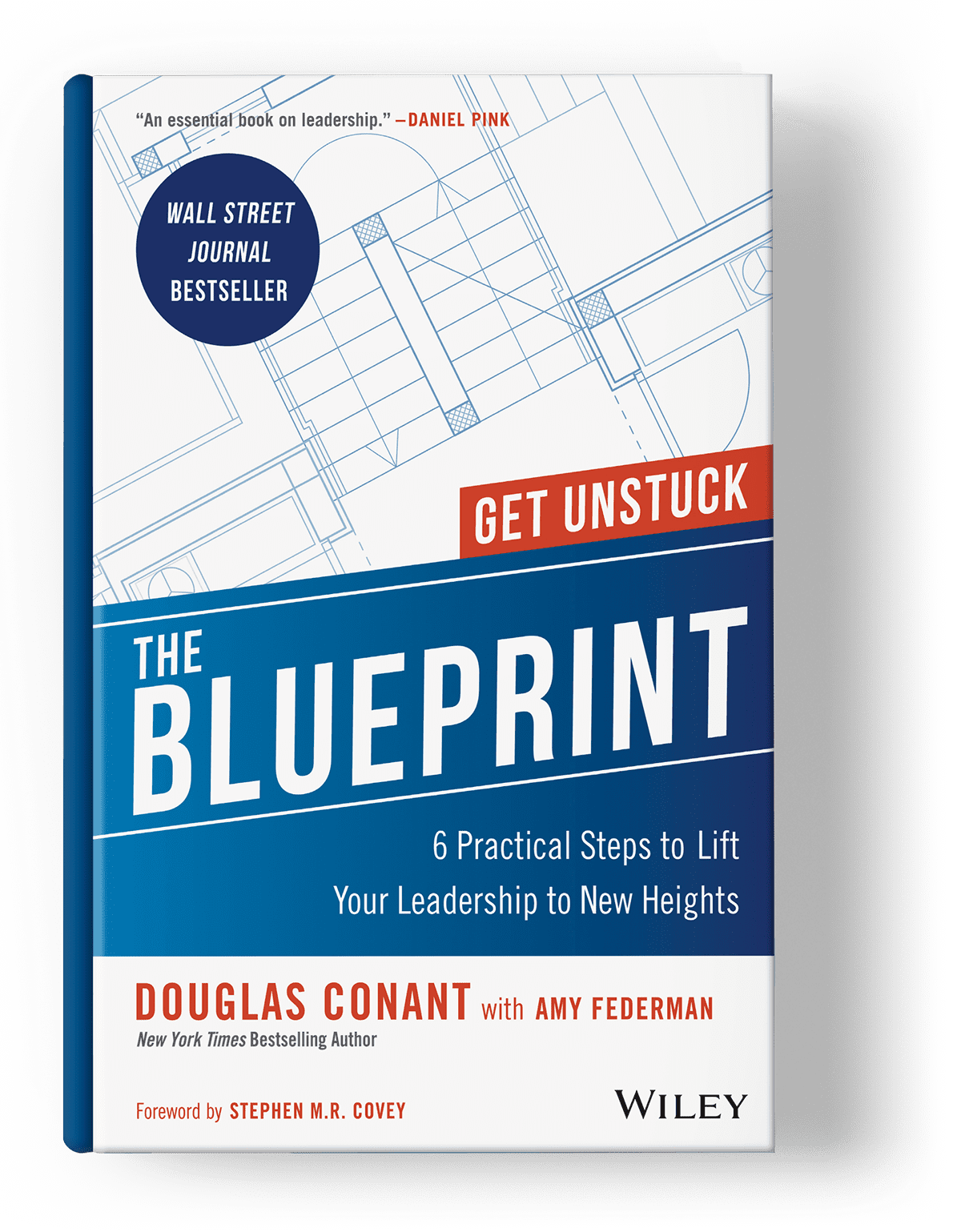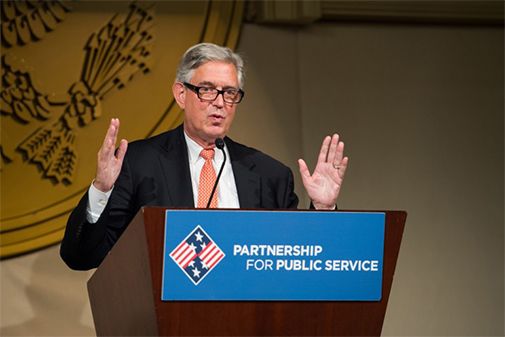At the recent Catalyst Summit, hosted by Hope College and Malcolm Gladwell, thought leaders convened to discuss a new “pay-it-forward” model for higher education that will allow students to attend college without paying or borrowing money upfront. The goal is to make education more accessible for learners across every demographic because, in the words of Hope College President Matthew Scogin: “Talent is equally distributed, but opportunity is not.”
A progressive approach to educating the next generation of leaders has implications for how companies may seek, attract, and retain talent in the future. And when students are able to pursue an education without carrying the stress of undue financial burden, they may be freer to develop a broad range of interests, and a suite of traits that are attractive to potential employers. Rather than being narrowly focused on skills they believe are most likely to offer a return on the investment of an expensive college education, learners can develop a more holistic set of strengths and pursuits.
At the summit, ConantLeadership Founder and Hope College Board Member Doug Conant—a veteran business leader with over 45 years of experience including a decade as a CEO in the Fortune 500—sat down with Malcolm Gladwell, the author of five New York Times bestsellers and the Co-Founder of Pushkin Industries, to discuss the future of workplace talent and leadership in light of this new educational model.
Here are three top takeaways from their conversation. (And you can watch a replay of their discussion here.)

Doug Conant and Malcolm Gladwell
‘Character’ Is a Competitive Advantage
Throughout their conversation, Conant and Gladwell discuss attributes that students should cultivate for success in the new world of work. They both agree that skills can always be developed to meet marketplace needs, but that high “character” is more elusive and desirable.
Gladwell, who co-founded his audio company Pushkin Industries in 2018, calls himself a “newbie” to hiring people but has quickly observed a trend: “The most important things, particularly in the modern economy, are about character and temperament and attitude, and less about native intelligence.”
Gladwell’s company creates what he calls, “sophisticated media content,” and thus requires that they hire from an “educated and sophisticated,” talent pool. He says finding people who fit those parameters is not the hard part; the bigger challenge is hiring for disposition and spirit. Gladwell shares that what he’s looking for is less about credentials and more about being tenacious and collaborative: “Do you want to show up for work in the morning? If there’s a crisis, do you fold or do you just work a little harder? And can you get along with the people you need to get along with? Because this is teamwork—it’s not solo work.” He explains that, in today’s economy, “Everything is in motion, and the only thing that will allow you to thrive in a world that is in constant motion are those traits,” of collegiality and grit.
Conant, a veteran in the sphere of attracting, retaining, and engaging talent, backs up Gladwell’s observations. As President of Nabisco Foods and CEO of Campbell Soup Company, he looked for three things when hiring and building teams: “High character,” “competence in their field,” and, “chemistry—their ability to perform well with others.” He explains that most companies can help with “skill development,” but what will, “differentiate you in the fullness of time is the content of your character, and the courage you have to bring to the situation.” Conant connects this to the power of education: “It’s hard to have the courage of your convictions if you don’t know what your convictions are.” The more people have access to education, the more they can learn and develop their own point of view—otherwise, he says, “when you are tested, it’s easy to shrink.”
Conant says emerging from college as a well-rounded contributor is more important now than ever: “We have all this information flowing over us . . . and it can be incredibly daunting.” He says, “The test is partially how you process,” the chaos of the information age and, “then the character you bring,” and the fortitude to, “put one foot in front of the other, show up, and get the work done.”
A ‘Growth Mindset’ Is Not Defined by Age or Prestige
The panelists agree that there is no substitute for character—and their shared definition of character includes a commitment to learning and growth. Conant talks about Carol Dweck’s theory of the, “growth mindset,” which posits, in his words, “if you think you can get better, you probably will.” He says this mindset is a top predictor of workplace and leadership success because, “all you have to do in the marketplace is to be a little better,” than your competitors and to embody a, “spirit of continuous improvement.” For this reason, Conant says lifelong learners are an attractive prospect for talent recruiters. He shares, “When I was running companies, we were looking for people who had an appetite for growth, who wanted to lead the charge.”
Gladwell builds on this, explaining that we’re not, “very efficient in this country at turning desire and ability into actual accomplishment,” partly because before people have the opportunity to enter a field and adopt a growth mindset, “the initial choice is being corrupted,” by the current educational model. He says the knowledge that college will be a large financial obligation, “skews your choices from the starting point.” This dampens students’ potential because they are disinclined to follow or discover their “calling,” due to finances, “constraining their choices.”
Gladwell believes a full expression of a growth mindset includes creating the opportunity for learners to pursue education at any point in their life or career: “We have a model that says you go to college when you’re 18,” and then go out into the world and try to leverage what you learned. This model is antagonistic to lifelong growth because it dissuades people from pursuing education in adulthood when the prospect of incurring “a massive amount of debt,” clashes with grown-up obligations and responsibilities. Gladwell envisions a boon to the talent landscape if more colleges “give people the opportunities to rethink what they’re doing, and take on new challenges, and go in new areas at any point in their life, unconstrained by the notion that debt is going to weigh them down.” He says, “you could create a world where we can start rediscovering people’s talents in midlife. That’s insanely exciting.”
Conant connects the inclination for continuous growth to the “appetite to contribute.” And he says, just as this “appetite” is not defined by age, it is also not defined by prestige. He shares that nearly 60 people who have worked for him went on to become CEOs and only a handful attended elite schools with global name recognition. Conant says the best employees are linked by a raw capacity to do hard things and an internal momentum to evolve over time, not by any particular silk-stocking affiliation. The more talented people gain access to an education—from any number of places that can help them harness and develop their intrinsic energy—the better the world will be.
Gladwell shares a conversation he had with an executive at Goldman Sachs (GS) in the wake of the 2008 financial crisis. Normally, GS only hired from places like Harvard, MIT, and Oxford. But one year, because GS was in “low esteem among elite college graduates,” they hired an entire class of associates from lesser-known schools. The executive said, “it was the best class in our history,” and revealed the virtues of, “getting people who were hungrier and not from these credentialed places.” Although GS ultimately returned to their practice of hiring from top schools, eschewing the lessons from their accidental experiment, Gladwell has not forgotten the wisdom of the anecdote. In his hiring process, he says the name of the school on a prospect’s resume is irrelevant: “I have a ‘don’t ask, don’t tell’ rule with undergraduate institutions when I hire, which is if you tell me at any point in your interview process where you went to college, you’re disqualified.” This helps both parties focus on what really matters: the work and the attitude you bring to it.
Conant and Gladwell agree: A commitment to growth and a drive to deliver are top attributes in the future of workplace talent—and they’ve got little to do with life-stage or fancy degree.
The World of Work Needs More Joy
In an increasingly complex world, the panelists say a mental health crisis is underway. Leaders and institutions can ameliorate this in a few ways.
First, Gladwell says, “the thing that worries me most is the absence of the idea of joy from a lot of discussions of work,” and, “when I find someone who finds joy in work, then that’s the person I’m drawn to.” He says one way to push back against “credentialism and bias,” in hiring is by acknowledging that, “the most fundamental attributes that we want in an employee,” like a joyful outlook, “are unconnected, uncorrelated with the prestige of the institution they attended.” In fact, sometimes the “hyper-competitive hot house,” of top schools can leech the cheer out of professional pursuits to a “heartbreaking,” and counterproductive degree. The more leaders and hiring managers can reward and celebrate joyful virtues, the less pressure there may be to push people to their breaking points before they even enter the workforce. And the less powerful the social cachet of name-brand degrees becomes.
Conant, like Gladwell, says, “joy is essential.” And he says the onus is on both workers and leaders to prioritize happiness, a concept he laments is “underdeveloped,” in leadership conversations. For employees, he urges young people to find greater fulfillment at the outset of their careers by consciously living, “into the best version of yourself in the workplace,” which requires self-reflection to, “have an idea of what the best version of yourself is.” Take stock of what excites you. Learn what ignites your passion. Connect with your values.
For leaders and organizations, Conant warns, it’s impossible to have “a sustainable enterprise absent joy and fulfillment. You just can’t do it. You burn out.” Therefore, companies have a duty to create the conditions for a joyful and fulfilling employee value proposition. He explains this means transitioning away from a dated, hierarchical leadership model that once required using, “fear and intimidation,” to influence people. Moving forward, leaders should work to, “influence with honor,” instead of wielding power, “in a transactional way.” To cultivate positive cultures, Conant says the most pressing question is: “How can I create an honorable, civil culture that can bring out the best in people?”
Wrapping It Up
As students, organizations, and leaders co-create the future of work in a fast-paced world—and as institutions follow Hope College’s lead in building more equitable access to education—all parties can find actionable advice from panelists Doug Conant and Malcolm Gladwell.
Remember—
- Character is a competitive advantage; it’s more powerful than innate intelligence.
- A growth mindset will serve you well throughout your career. And it has little to do with age, access, or prestige.
- Prioritizing joy in the workplace can help combat a growing mental health crisis, fight credentialism bias, and attract better talent to your organization.
To explore Conant and Gladwell’s full conversation, watch the replay here.
____
 Enjoyed these insights? Don’t miss our 5th Biannual BLUEPRINT Leadership Summit featuring Doug Conant in conversation with top leadership minds and luminaries. Registration is FREE, but space is limited, RSVP today: https://start.conantleadership.com/blueprint-leadership-summit/
Enjoyed these insights? Don’t miss our 5th Biannual BLUEPRINT Leadership Summit featuring Doug Conant in conversation with top leadership minds and luminaries. Registration is FREE, but space is limited, RSVP today: https://start.conantleadership.com/blueprint-leadership-summit/
Find Doug’s past #BLUEPRINTSummit conversations with top thought leaders like Brené Brown, Bill George, Amy Edmondson, Indra Nooyi, Dan Pink, Susan Cain, and more in our video library.
And find blog recaps of past summit discussions in our resources here: https://conantleadership.com/blog/
 About the author: Amy Federman is ConantLeadership’s Director of Content and Editor in Chief, and co-author with Doug Conant of the WSJ bestseller, The Blueprint.
About the author: Amy Federman is ConantLeadership’s Director of Content and Editor in Chief, and co-author with Doug Conant of the WSJ bestseller, The Blueprint.
(Cover photo by Baim Hanif on Unsplash)






0 Comments